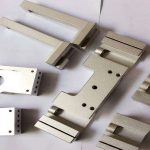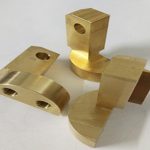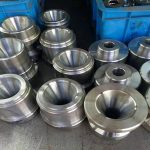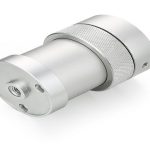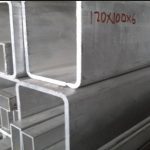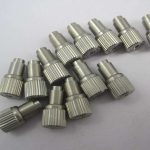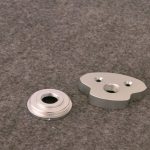China is known as the “world factory”. With the continuous development of the economy, China’s manufacturing industry will be in a stage of transformation and upgrading. More companies will seek robot substitution strategies to enhance their corporate image and strengthen product quality control and improvement. Labor productivity.
background
Robots have been widely used internationally since the 1970s, and they are just another type of “tool” invented and used by mankind. The most important function is artificial replacement. Combining the experience of developed countries, the robot industry can be divided into five stages: technical preparation period, industrial incubation period, industrial development period and intelligent period. The robotics industry in the United States, Japan and Europe has completed the first four stages and is currently in an intelligent period. The United States is the birthplace of industrial robots. As early as 1959, the United States’ UNIMATION company produced the world’s first industrial robot UNIMATE. However, with the transfer of manufacturing capacity to Asia, its industrial robot body industry has been slow. In the 1980s, the Japanese robotics industry achieved a surpassing of the United States and became the “robot kingdom”. In 2000, the United States, Japan and other major robotics countries have devoted themselves to the research and development of more sophisticated technologies. Robot technology has entered a period of rapid development and is moving towards the stage of intelligence. While China’s robot industry is still in its incubation period, industrial economic robots are in the 3/4 stage.
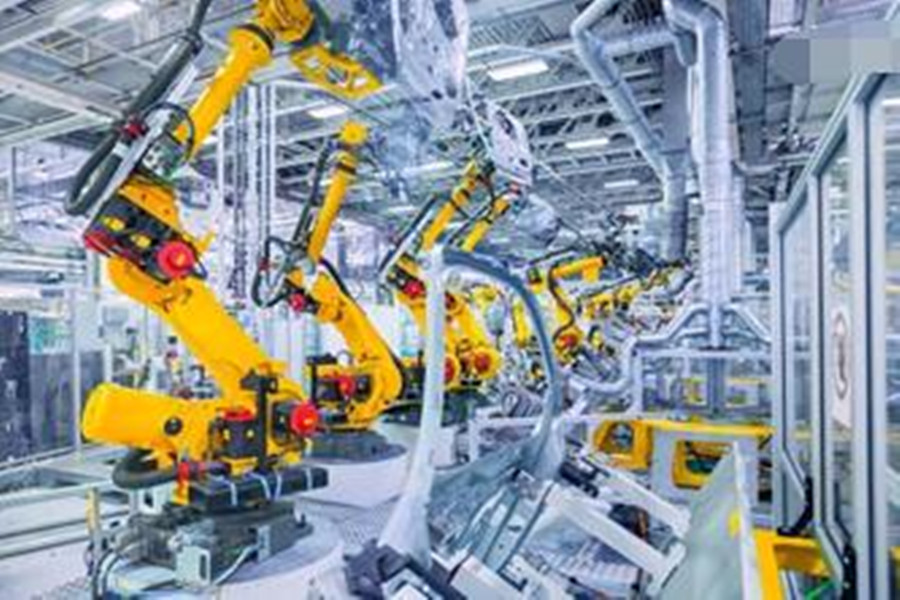
The world is experiencing the fourth industrial revolution. Industry 4.0 is based on information geographic systems, and 80% of innovations are driven by information and communication technology (ICT). Automation and informatization are the keys to advanced manufacturing. As the successor of automation technology, robots are still one of the most important technical facilities for Industry 4.0. It can be said that the fourth industrial revolution is still based on robots. In particular, the development of industrial robots is closely related to the transfer of global manufacturing. Robots replacing humans will be the future development direction of global manufacturing. In a broad sense, automation equipment that can be freely programmed is considered a robot, and it can be well replaced by humans. According to the structure of industrial robots, industrial robots are currently divided into rectangular coordinate type, multi-joint type, joint coordinate mixed type and parallel type. It can be subdivided into high-end six-joint robots and economical robots with less than six axes.
The solution to reduce labor in plastic-based production enterprises is to process automatic industrial robots in injection molding machines, blister machines, and blow molding machines, with automatic feeding systems, automatic nozzle crushing and recycling systems, automatic identification devices, and receiving stations. , Automatic conveyor and automatic storage system, etc., to realize normal automatic production.
2. Problems faced by enterprises
With the global economic development, companies have encountered many problems, which are reflected in the following points:
2.1 Increasing production costs and management costs of enterprises
With the rapid expansion of the market in the injection molding industry, the demand for workers from injection molding companies is increasing. At present, the rapid development of social economy has gradually improved people’s living standards. Workers’ wages have also risen rapidly, and they need to be paid in full and in time every month. With the extension of the working life of workers, the labor cost of enterprises has increased year by year. How to make it bigger Strengthening the reduction of production costs, the improvement of product quality and labor productivity are strategic issues that every company must face.
2.2 Product quality cannot be effectively guaranteed
The continuous stability of workers due to their own technical level and work mentality is the most critical factor for the product. Companies often face shortages of production human resources due to the tight production task time, and the overall level and work mentality of workers cannot be consistent. This leads to unstable product quality, especially the new generation of workers born in the 1990s have higher requirements for wages and social welfare, and require lower labor intensity, and often change jobs, resulting in high employee mobility and serious losses to the company.
With the continuous advancement of the national “Made in China 2025” plan, the automation industry is facing unprecedented opportunities. New products emerge in endlessly, technology continues to innovate, and the quality of domestic robot industry products is becoming more mature. The adoption of robot strategies is the general trend. On the one hand, it reduces the labor of workers. Intensity, robot automation production line, from loading, clamping, and unloading are completely completed by robots, reducing intermediate links, greatly improving the quality of parts, and ensuring the stability of product accuracy; high-safety compact intelligent robots replace manual operations, It can better control the beat, avoid the impact on the production beat due to human factors, greatly improve the production efficiency, and realize the automated mass processing; promote the development of robots in the processing manufacturing industry, and improve the product quality and consistency of the processing manufacturing industry It provides basic equipment support for industrial upgrading.
2.3 Production line of injection molding industry
It has always been based on high production capacity and high investment, with strict production management and testing, to provide customers with fast quality products to meet market demand;
In view of the above comprehensive factors, many production-oriented enterprises are considering how to automate the transformation of existing production modes under the premise of ensuring product quality and improving production schedules. Has achieved the effect of reducing labor costs and releasing labor.
3. Solution
Based on the above problems, we propose the following solutions for the injection molding machine industry:
Solution 1: A single injection molding machine is equipped with a manipulator and a workbench, mainly for small workshop-type enterprises, and the products produced are relatively single.
Solution 2: Three injection molding machines are equipped with manipulators and connected to each other to customize products for small and medium-sized enterprises, and enterprises whose products have reached mass production according to customer requirements.
Scheme 3: All injection molding machines in the whole plant are equipped with manipulators and connected for centralized post-processing. The following operations can be completed by manipulators in the plastic processing industry:
Instead of manually removing products and waste materials (or nozzles) from the equipment, it further cooperates with the use of machine vision technology to detect products and molds, and automatically separates and separates product waste or nozzles, qualified products, and unqualified products. Protect the mold. Use special tooling and special jigs to automatically embed the inserts into the mold. The product label is automatically put into the mold for one-time forming, without the need for human hands to paste it again.
Cooperate with automatic air shears, scissors molds or laser cutting equipment, etc. to automatically remove the products that do not require too many nozzles, flashes, etc. By installing automated equipment such as robots, plastic processing plants will realize “unmanned” operation and management, minimizing the use of manpower, even if labor and other costs are minimized. In recent years, with the rise of workers’ wages and the emergence of “migrant labor shortage”, many domestic plastic processing enterprises have also begun to install manipulators and related automation equipment, which have achieved good economic benefits and become a new trend and trend for cost saving.
Summarize
China is known as the “world factory”. With the continuous development of the economy, China’s manufacturing industry will be in a stage of transformation and upgrading. More companies will seek robot substitution strategies to enhance their corporate image and strengthen product quality control and improvement. Labor productivity.
Link to this article: Plastic blister machine plus automatic industrial robot to reduce the labor plan of plastic production
Reprint Statement: If there are no special instructions, all articles on this site are original. Please indicate the source for reprinting:https://www.cncmachiningptj.com/,thanks!
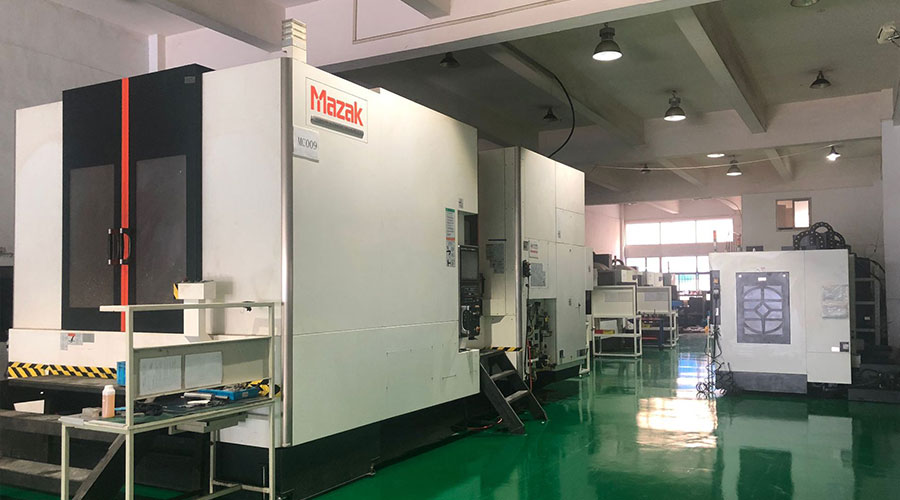 PTJ® provides a full range of Custom Precision cnc machining china services.ISO 9001:2015 &AS-9100 certified. 3, 4 and 5-axis rapid precision CNC machining services including milling, sheet metal to customer specifications,Capable of metal & plastic machined parts with +/-0.005 mm tolerance.Secondary services include CNC and conventional grinding, laser cutting,drilling,die casting,sheet metal and stamping.Providing prototypes, full production runs, technical support and full inspection.Serves the automotive, aerospace, mold&fixture,led lighting,medical,bicycle, and consumer electronics industries. On-time delivery.Tell us a little about your project’s budget and expected delivery time. We will strategize with you to provide the most cost-effective services to help you reach your target,Welcome to Contact us ( [email protected] ) directly for your new project.
PTJ® provides a full range of Custom Precision cnc machining china services.ISO 9001:2015 &AS-9100 certified. 3, 4 and 5-axis rapid precision CNC machining services including milling, sheet metal to customer specifications,Capable of metal & plastic machined parts with +/-0.005 mm tolerance.Secondary services include CNC and conventional grinding, laser cutting,drilling,die casting,sheet metal and stamping.Providing prototypes, full production runs, technical support and full inspection.Serves the automotive, aerospace, mold&fixture,led lighting,medical,bicycle, and consumer electronics industries. On-time delivery.Tell us a little about your project’s budget and expected delivery time. We will strategize with you to provide the most cost-effective services to help you reach your target,Welcome to Contact us ( [email protected] ) directly for your new project.
Link to this article:Plastic blister machine plus automatic industrial robot to reduce the labor plan of plastic production
Reprint Statement: If there are no special instructions, all articles on this site are original. Please indicate the source for reprinting:Tungusten,Thanks!^^

